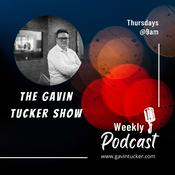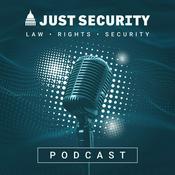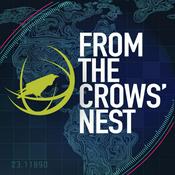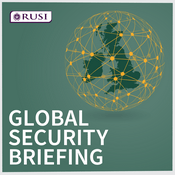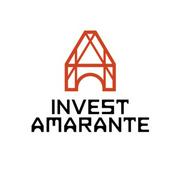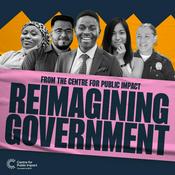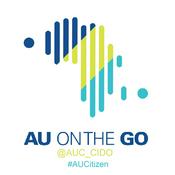50 episodes
- Zane Pucylowski is on a mission to fix a broken industry. In this episode, Chad Smeltzer dives into Zayn’s journey from muddy job sites to launching a million-dollar marketing company all while running an engineering firm.
They break down the crisis in engineering talent, why most firms are undercharging, and how Gen Z can (and will) change the future of construction if we let them.
This one’s packed with honest insights, real solutions, and a wake-up call for every civil engineer, fabricator, and municipal leader out there.
🔗 Connect with Zayn: phoenixengineering.com | @ZaynEngineersLife
📲 Connect with Chad: linkedin.com/in/chadsmeltzer - In this episode of The Infrastructure Network Podcast, host Chad Smeltzer sits down with Jonathan Hasson, VP of Smart Water Solutions at Aquasight llc, to explore his unconventional career path — from civil engineering roots to leading in intelligent water tech.🚀 Topics Covered:Early influences that led Jonathan to Mississippi State UniversityHis experience in structural design and nuclear co-opsTransition from engineering consulting to utility operationsLessons from managing water/wastewater systems in Puerto RicoHow tech and AI are reshaping civil engineeringOvercoming rigid consulting structures and gatekeepingThe future of smart water systems and software innovationEmpowering the next generation of engineers📌 Whether you're a young professional, an industry veteran, or simply curious about where infrastructure is headed — this conversation offers real insight into the evolving landscape of engineering, technology, and leadership.⏱️ Timestamps00:00 – Welcome + Intro to Jonathan Hassan (AquaCite VP, Smart Water Solutions)01:04 – How a girlfriend’s dad + strong math skills led Jonathan to civil engineering02:56 – Why he chose Mississippi State + early exposure through his older brother04:42 – Starting co-op work after freshman year at a nuclear power facility06:50 – The value of hands-on experience and realizing civil’s broad career paths08:25 – Why he added a master’s degree before entering the workforce09:54 – First job: Design engineering at Metcalf & Eddy11:35 – Why he left consulting: advancement by tenure, not merit12:25 – Shifting into operations & management roles in Puerto Rico14:42 – Working under EPA & DOJ in water/wastewater utilities16:10 – Transition into business operations at ADS Environmental17:58 – 20 years at ADS: from field ops to director of product management19:40 – Moving into software: becoming VP at AquaCite21:04 – Personal challenges: fear of change, career leaps & self-doubt23:05 – Professional challenges: resistance to tech in legacy infrastructure25:00 – Industry evolution vs. industry revolution — and who’s lagging behind27:06 – Advice to the next generation of engineers29:10 – AI, reskilling, and the future of water & infrastructure jobs30:20 – Closing thoughts + where to connect with Jonathan
- In this episode of The Infrastructure Network, Chad sits down with Josh Burnett, founder of RDS, to talk real infrastructure issues — cost overruns, low-bid traps, broken procurement, and the toxic culture inside civil engineering firms. Josh breaks down how he saved over $1.3 million in just a few projects by rethinking land development and refusing to play by the outdated rules.If you're in civil engineering, land development, construction, or infrastructure procurement, this conversation is a must-listen.👷♂️ Topics:Why most civil engineers don’t get to fully design (and what that’s costing us)The low-bid mindset: how it creates long-term infrastructure failuresWhy politics and profit often override planning and community impactWhat a smarter, people-first infrastructure model looks like⏱️ Timestamps:00:00 - Intro to Josh Burnett & Background02:29 - Breaking into civil engineering during the recession07:47 - Toxic culture in engineering firms & what drove Josh to leave10:07 - What it's really like to manage land development projects15:47 - Saving $1.3M by thinking differently about engineering21:05 - Low-bid culture: why cheap planning costs big later24:03 - Politics, greed, and why good plans still get blocked27:05 - Engineering vs Planning: Why working together saves money29:33 - Why planning is the hardest and most critical part
- Michael's conversation with Chad Smeltzer covers the essentials of how city managers handle budgeting, the significance of long-term fiscal planning, and the challenges cities face with infrastructure management. Through his tenure in cities like San Antonio and Ventura, Michael emphasizes the importance of understanding both current and future fiscal impacts to create sustainable city environments. The episode also explores the innovative solutions offered by Zachtax in assisting cities with sales tax and property tax analytics for smarter, data-driven decision making.
Importance of Long-Term Planning: Cities often focus on short-term financials due to system limitations, ignoring crucial long-term infrastructure costs.
Data-Driven Decisions: Access to detailed, real-time data can empower city managers to make informed economic and infrastructure decisions.
Role of Zachtax: Zachtax provides necessary tools for cities to analyze sales tax and property tax data, aiding in economic development and fiscal sustainability.
Management Challenges: Transitioning from managing projects to managing people and navigating crises like Hurricane Harvey poses unique challenges for city managers.
Development and Fiscal Impact: Evaluating the fiscal impact of new developments can help cities plan sustainably and avoid future financial burdens. - Elliot Smith is a forward-thinking entrepreneur with a background in municipal engineering. With nearly seven years in consulting, Elliot discovered his path after recognizing the potential and necessity for innovation within civil infrastructure. Not limiting himself to engineering alone, he sought to expand his expertise and completed an MBA to bridge the gap between engineering and business. As the CEO of Motmot, Elliot has positioned himself at the forefront of modernizing underground infrastructure through technology.
In this engaging conversation, host Chad Smeltzer explores the intersections of engineering, entrepreneurship, and technology with Elliot Smith, CEO of Motmot. The episode dives into the innovative world of civil infrastructure and how emerging technologies can revolutionize its maintenance and management. Elliot discusses his journey from discovering civil engineering to becoming an innovator seeking to disrupt the industry with advanced solutions for water system inspection and maintenance.
From Elliot's evolution from an engineer to a business-savvy CEO, this episode sheds light on the pressing need for infrastructural insights and the development of Motmot's unique robot technology.
### Key Takeaways:
* Elliot Smith transitioned from a municipal engineer to an entrepreneur after identifying the need for more cost-effective infrastructure inspection.
* Motmot, Elliot's company, is developing a robotic solution that offers long-term, autonomous inspection of water systems to help communities manage underground infrastructure.
* There's a pressing need for transparency and public education on water systems, alongside more efficient funding and workforce strategies.
* Advanced technologies like Motmot's robotic inspector can potentially save communities money and improve predictive maintenance of water systems.
* The adoption of innovative infrastructure technologies faces resistance but also garners significant interest from communities seeking improved management tools.
More Government podcasts
Trending Government podcasts
About The Civil Infrastructure Network
🎙️ The Civil Infrastructure Network is a media platform for civil engineers, public works professionals, utility managers, city officials, and construction leaders who are ready to challenge the status quo and deliver real education about the communities in which they live and work.
We cover real issues — burnout, underpay, outdated systems — and spotlight forward-thinking solutions through leadership, AI, automation, communication, and entrepreneurship.
From the field to the office, we’re building a connected community to share insights, educate the next generation, and unite people.
Podcast websiteListen to The Civil Infrastructure Network, U.S. Supreme Court Oral Arguments and many other podcasts from around the world with the radio.net app
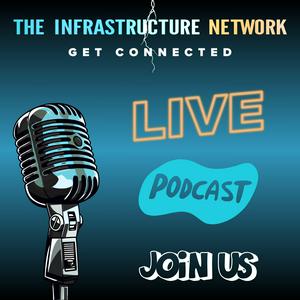
Get the free radio.net app
- Stations and podcasts to bookmark
- Stream via Wi-Fi or Bluetooth
- Supports Carplay & Android Auto
- Many other app features
Get the free radio.net app
- Stations and podcasts to bookmark
- Stream via Wi-Fi or Bluetooth
- Supports Carplay & Android Auto
- Many other app features


The Civil Infrastructure Network
Scan code,
download the app,
start listening.
download the app,
start listening.


